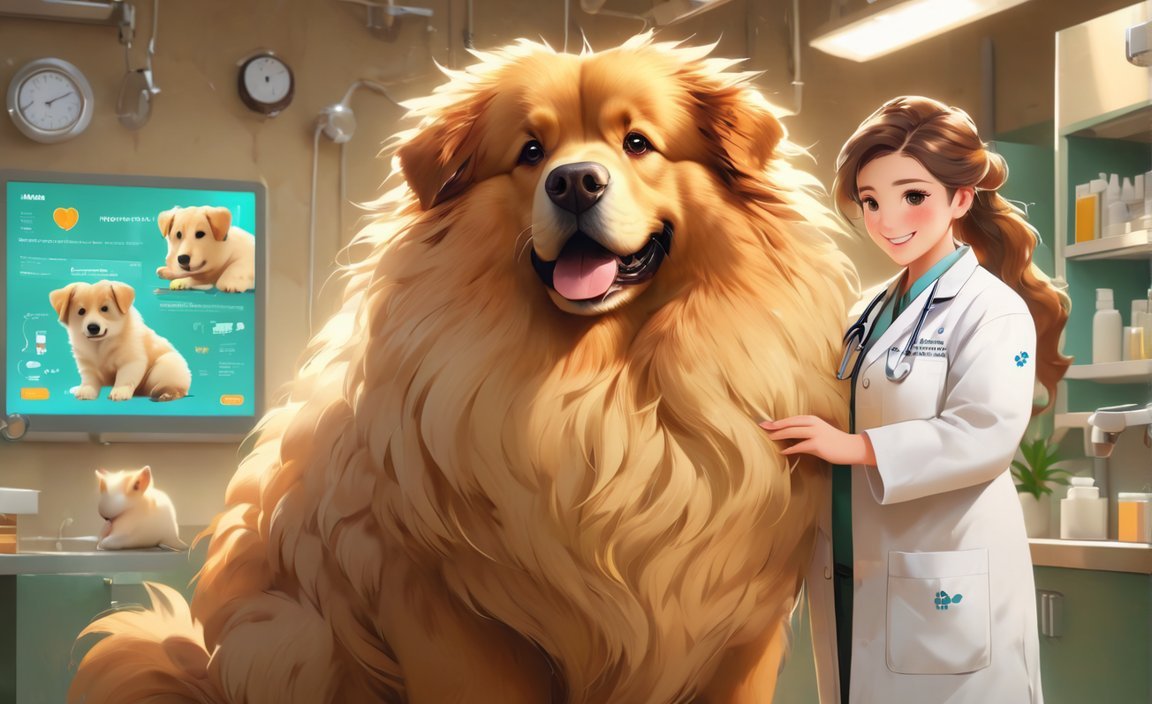Discover 10 Fascinating Facts About Veterinarians: The Experts in Animal Care. From their vast medical knowledge to their ability to communicate with pets and their owners, veterinarians play a vital role in the health and well-being of animals. In this article, we will delve into the world of these dedicated professionals, uncovering intriguing aspects of their work and highlighting some surprising facts that will leave you amazed and inspired. Join us on this journey to gain a deeper understanding of the incredible world of veterinarians and their unwavering commitment to improving animal welfare.

Key Takeaways:
- Veterinarians undergo extensive education and training, including obtaining a bachelor’s degree and attending veterinary college to become licensed veterinarians.
- Veterinarians have the opportunity to specialize in various fields such as dentistry, preventive medicine, exotic pets, and livestock.
- They treat a wide range of animals, including domestic pets, livestock, and exotic animals, providing both medical treatment and preventive care.
- Veterinarians play a crucial role in public health by helping control the spread of diseases that can be transmitted from animals to humans.
- Veterinary medicine has a long history, with the first veterinary school established in London in 1761.
- Veterinarians have the skills to perform complex surgeries and provide necessary medical procedures for animals.
- They not only treat diseases but also provide preventive care for animals, administering vaccinations and offering advice on maintaining their health and well-being.
- Veterinarians can work in various settings, including private veterinary clinics, animal hospitals, research laboratories, zoos, and government agencies.
- The field of veterinary medicine is predominantly female, with approximately 80% of veterinarians being women.
10 Fun Facts About Veterinarians
Extensive Education and Training
- Did you know that veterinarians undergo extensive education and training to become experts in animal care?
- They must obtain a bachelor’s degree and attend veterinary college to become licensed veterinarians[^1^][^10^].
Specialization in Various Fields
- Veterinarians have the opportunity to specialize in various fields, such as dentistry, preventive medicine, exotic pets, and livestock.
- These specializations allow them to focus on specific areas of interest and provide specialized care[^3^][^10^].
Treatment of a Wide Range of Animals
- Veterinarians are not just limited to treating domestic pets. They also care for livestock and even exotic animals!
- Their expertise extends to diagnosing and treating medical conditions in a wide range of animals, ensuring their health and well-being[^1^].
Crucial Role in Public Health
- Did you know that veterinarians play a crucial role in public health?
- They help control the spread of diseases that can be transmitted from animals to humans, making them vital in maintaining the health of both animals and humans[^3^].
Long History of Veterinary Medicine
- Veterinary medicine has a long and rich history.
- The first veterinary school, the Royal Veterinary College in London, was established back in 1761[^10^].
Performance of Complex Surgeries
- Veterinarians possess impressive surgical skills that allow them to perform complex surgeries for animals in need.
- Just like human doctors, they have the expertise and knowledge to provide necessary medical procedures for the well-being of animals[^1^].
Provision of Preventive Care
- Veterinarians not only treat diseases but also provide preventive care for animals.
- They administer vaccinations and offer advice on how to maintain the health and well-being of pets, ensuring they live a long and happy life[^1^].
Various Work Settings
- Just like human doctors, veterinarians work in various settings.
- They can be found in private veterinary clinics, animal hospitals, research laboratories, zoos, and even government agencies[^1^][^10^].
Female Dominance in the Field
- It might surprise you to know that approximately 80% of veterinarians are women.
- This gender imbalance is unique compared to other medical professions, making veterinary medicine an empowering field for women[^3^].
Veterinary Medicine: A Career of Passion
- Being a veterinarian requires passion and dedication.
- Veterinarians have a deep love for animals and are committed to improving animal welfare and ensuring their well-being[^3^].
I hope these 10 fun facts about veterinarians have provided you with a unique glimpse into the world of these animal care experts. Whether they’re performing complex surgeries, specializing in different fields, or playing a crucial role in public health, veterinarians play an essential role in keeping our furry friends healthy and happy.
Here are 10 fun facts about being a vet. Did you know that vets have to complete years of education and training to become licensed? Find out more fascinating facts about being a vet by clicking here.
Do you want to know some interesting facts about being a veterinarian? Click here to discover 10 fun facts about this rewarding profession.
Curious about what it’s like to work with vets? Check out these 10 fun facts about vets by clicking here. You might be surprised by what you learn!
Therapy dogs are incredible animals that provide comfort and support to those in need. Dive into 10 fun facts about therapy dogs by clicking here and see just how amazing they are!
Pets bring immense joy and companionship to our lives. Click here to learn 10 fun facts about these beloved creatures, from surprising behaviors to unique characteristics.
Looking for fascinating facts about dogs and cats? Click here to discover 10 fun facts about these popular pets that will make you appreciate them even more!
Did you know that different animals have unique teeth structures? Explore 10 fun facts about animal teeth by clicking here and learn about nature’s dental wonders.
Fact 3: Treatment of a Wide Range of Animals
As veterinarians, these animal care experts provide medical treatment for a wide variety of animals. From beloved household pets to majestic creatures in zoos, they dedicate their expertise to ensuring the health and well-being of all kinds of animals, including livestock and even exotic species[^2^][^19^].
Imagine the vast knowledge and skills required to treat such a diverse range of animals! Veterinarians acquire the education and training necessary to handle the unique needs and challenges presented by different species. Whether it’s performing routine check-ups, treating injuries, or managing chronic conditions, veterinarians play a vital role in keeping animals healthy and thriving.
In fact, veterinary medicine offers various specialization options. Veterinarians can choose to focus on specific areas such as small animals like dogs and cats, exotic animals like reptiles and birds, dentistry, preventive medicine, and animal husbandry, to name just a few[^2^][^19^]. This allows them to develop expertise in particular fields and provide specialized care tailored to the needs of different types of animals.
Take a moment to appreciate the incredible range of animals that veterinarians care for. They not only interact with our beloved pets, but they also work with livestock, ensuring the health and productivity of these vital agricultural animals. And let’s not forget the exotic species that call zoos and wildlife sanctuaries home. Every animal, big or small, domestic or wild, benefits from the knowledge and compassion of veterinarians.
Now, let’s dive deeper into some fascinating insights about veterinarians and their work:
Key Takeaways:
- Veterinarians provide medical care for a wide variety of animals, including household pets, livestock, zoo animals, and exotic species.
- Veterinary medicine offers specialization options, allowing veterinarians to focus on specific areas such as small animals, exotic animals, dentistry, preventive medicine, and more.
Sources:
- Facts.net – 19 Fascinating Facts About Veterinarian
- Brandywine Valley SPCA – Fun facts about veterinarians
Fact 4: Veterinarians Play a Crucial Role in Public Health
From controlling the spread of diseases to ensuring the safety of our food supply, veterinarians have a significant impact on public health. Here are some fascinating facts about their role in keeping both animals and humans healthy.
-
Disease Control: Veterinarians play a crucial role in preventing and controlling the spread of infectious diseases. They work closely with public health agencies to monitor and manage diseases that can be transmitted between animals and humans, known as zoonotic diseases.
-
Food Safety: Ensuring the safety of our food supply is another vital responsibility of veterinarians. They work in collaboration with food industries to conduct inspections, monitor animal health, and implement preventive measures that guarantee the safety of the food we consume.
-
Research and Surveillance: Veterinarians are at the forefront of researching new diseases and developing ways to combat them. They conduct surveillance activities to monitor disease patterns, identify potential outbreaks, and provide valuable data for public health authorities.
-
One Health Approach: Veterinarians embrace the One Health approach, recognizing that the health of humans, animals, and the environment are interconnected. By understanding these complex relationships, they contribute to a holistic approach that benefits the well-being of all living beings.
-
Emergency Preparedness: In times of natural disasters or infectious disease outbreaks, veterinarians are an essential component of emergency response teams. They provide care to animals in affected areas, prevent disease transmission, and aid in the overall disaster relief efforts.
-
Health Education: Veterinarians take an active role in educating the public about animal health and its impact on human well-being. They provide guidance on responsible pet ownership, zoonotic disease prevention, and the importance of vaccinations.
-
Global Health Initiatives: Many veterinarians contribute to international efforts to improve public health in underserved regions. They volunteer their time and expertise to address health challenges in developing countries and promote animal welfare on a global scale.
-
Collaboration with Medical Professionals: Veterinarians work collaboratively with medical professionals to address shared health concerns. By sharing knowledge, research, and resources, they establish a strong interdisciplinary approach that benefits both human and animal health.
-
Animal Disease Eradication: Veterinarians play a vital role in eradicating animal diseases that could have devastating consequences if left unchecked. Through rigorous vaccination campaigns and disease control measures, they have successfully eradicated diseases such as rinderpest, a highly contagious viral illness affecting cattle.
-
Preventing Pandemics: By monitoring and managing zoonotic diseases, veterinarians contribute to the prevention of pandemics. Their expertise in disease surveillance, early detection, and control measures helps to identify and contain potential outbreaks before they become widespread.
Key Takeaways:
– Veterinarians have a significant impact on public health, from controlling the spread of diseases to ensuring food safety.
– They play a crucial role in disease control and prevention, particularly with zoonotic diseases that can be transmitted between animals and humans.
– Veterinarians work closely with public health agencies and food industries to ensure the safety of our food supply.
– They conduct research, surveillance, and emergency response activities to address health challenges and contribute to global health initiatives.
– Veterinarians collaborate with medical professionals to establish an interdisciplinary approach to shared health concerns.
– They are at the forefront of preventing pandemics through disease monitoring, early detection, and control measures.
Sources:
1. facts.net – 19 Fascinating Facts About Veterinarian
2. BVSPCA – Fun facts about veterinarians
Fact 5: Veterinarians Have a Long History of Animal Healing and Medicine
Did you know that the field of veterinary medicine has a long and storied history? Dating back to ancient times, veterinarians have been caring for animals in their times of need. Ancient civilizations such as the Egyptians, Greeks, and Romans possessed knowledge of animal medicine and healing techniques, paving the way for the comprehensive profession we know today.
The evolution of veterinary medicine over the centuries is truly fascinating. In the past, veterinarians focused mainly on treating livestock and working animals, ensuring their good health and productivity. However, as the bond between humans and their pets grew stronger, veterinarians expanded their expertise to include household pets such as cats and dogs.
Today, veterinarians play a crucial role in ensuring the well-being of our furry friends and wildlife alike. Their extensive education and training, including obtaining a Doctor of Veterinary Medicine (DVM) degree, equip them with the medical knowledge and skills necessary to provide top-notch care to animals of all shapes and sizes.
Beyond the basics of medical care, veterinarians are also skilled in performing complex surgeries. They can tackle intricate procedures such as orthopedic surgeries, tumor removals, and even organ transplants with precision and expertise. Their surgical abilities are a testament to their dedication to improving animal welfare and keeping our beloved pets healthy.
In addition to their medical expertise, veterinarians also provide valuable preventive care. They offer vaccinations, regular check-ups, dental care, and nutrition and exercise advice to ensure the overall health and well-being of animals. By emphasizing preventive care, veterinarians not only keep pets happy and healthy but also help prevent the spread of diseases.
Their contributions go beyond the clinic or hospital setting. Veterinarians work in various environments, including private clinics, animal hospitals, government agencies, research laboratories, and zoological parks. Their expertise is needed in these diverse settings to cater to the unique and specific needs of different animals.
It’s worth noting that the field of veterinary medicine has seen a significant gender shift in recent years. Approximately 80% of veterinarians are women, showcasing the growing involvement and representation of women in this field. Their passion and dedication to improving animal welfare have helped shape the veterinary profession into what it is today.
Key Takeaways:
– Veterinary medicine has a rich history dating back to ancient civilizations like the Egyptians, Greeks, and Romans.
– Veterinarians have expanded their expertise to include both livestock and household pets.
– Veterinary education and training equip veterinarians with the skills necessary to provide comprehensive medical care.
– Veterinarians are proficient in performing complex surgeries, including orthopedic procedures and organ transplants.
– Preventive care, such as vaccinations and regular check-ups, is a key component of a veterinarian’s role.
– Veterinarians work in various settings, including private clinics, research laboratories, and zoological parks.
– The field of veterinary medicine has seen a significant increase in female representation, with approximately 80% of veterinarians being women.
Sources:
– facts.net
– bvspca.org

FAQ
Q1: What type of education and training do veterinarians undergo?
A1: Veterinarians undergo extensive education and training, including earning a Bachelor’s degree and graduating from a veterinary college. They must also obtain licensure in their respective jurisdictions.
Q2: Can veterinarians specialize in specific fields?
A2: Yes, veterinarians can specialize in various fields based on their interests and passions. Some common areas of specialization include small animal medicine, exotic animals, dentistry, preventive medicine, and husbandry.
Q3: What types of animals do veterinarians treat?
A3: Veterinarians treat a wide range of animals, including household pets such as cats and dogs, livestock, zoo animals, and even exotic species. Their expertise extends to different species.
Q4: What role do veterinarians play in public health?
A4: Veterinarians play a crucial role in public health by ensuring the health and well-being of animals. They contribute to disease prevention, control zoonotic diseases (those transmitted between animals and humans), and promote food safety through inspections and regulations.
Q5: Where do veterinarians work?
A5: Veterinarians work in various settings, including private veterinary clinics, animal hospitals, research laboratories, government agencies, and even zoos. Their expertise is needed in different environments to cater to the diverse needs of animals.
- Unveiling the Enigma: Mansoureh Khojasteh Bagherzadeh’s Public Appearances & Private Life in Iran - July 18, 2025
- Unveiling the Mystery: Mansoureh Khojasteh Bagherzadeh’s Husband: A Rare Glimpse into a Private Life - July 18, 2025
- Unveiling Masoud Khamenei’s Mother: Power, Influence, and Iran’s Future - July 18, 2025
















